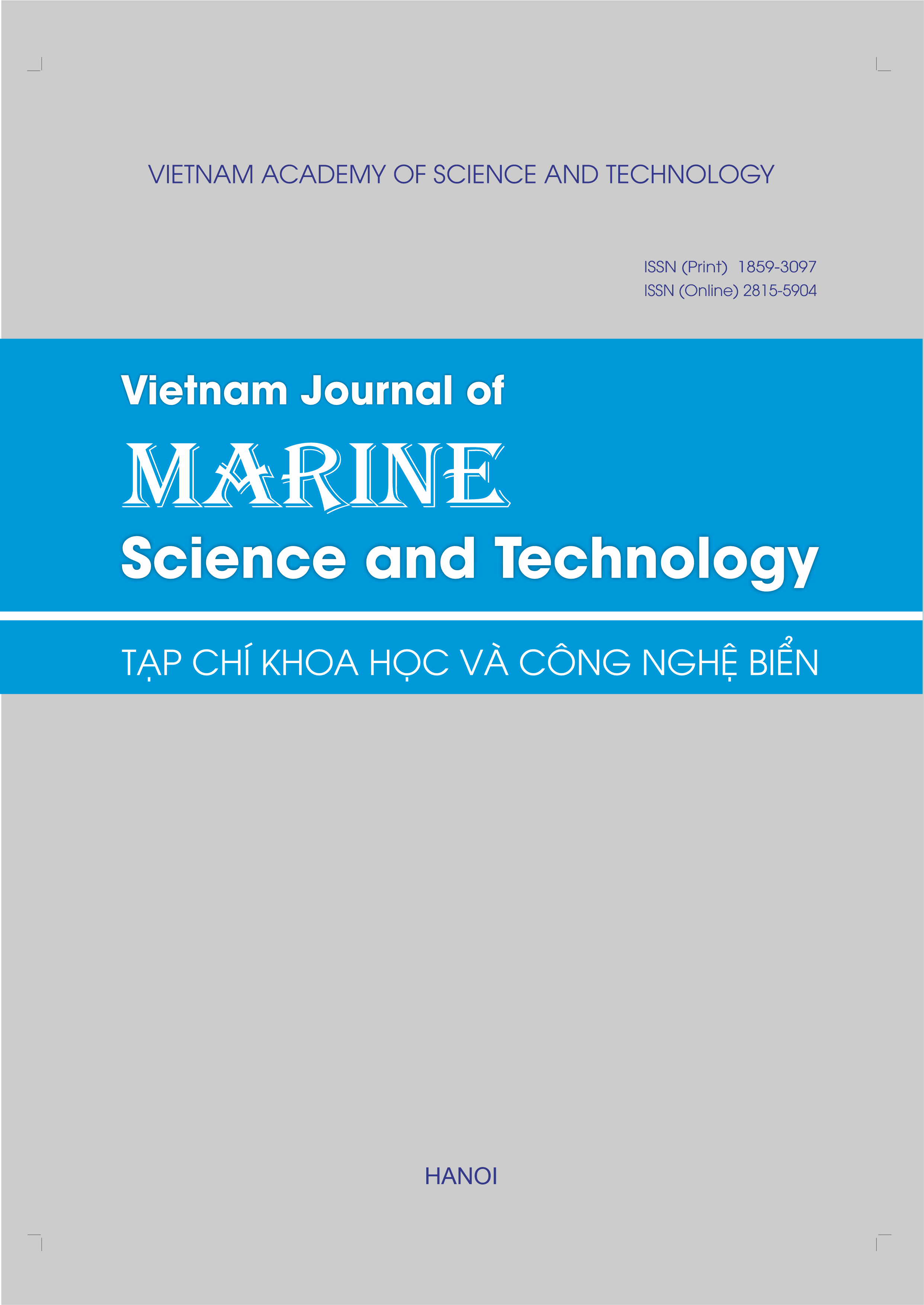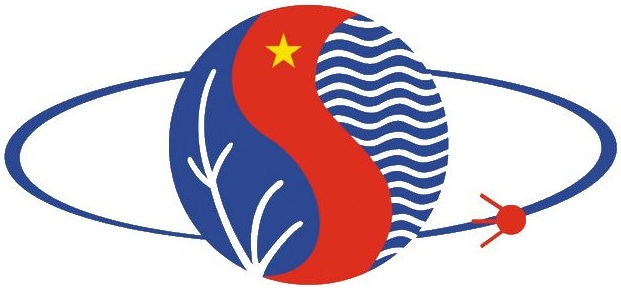An initial study on ocean acidification in Southern waters of Vietnam
Author affiliations
DOI:
https://doi.org/10.15625/1859-3097/16051Keywords:
Ocean acidification, Southern waters of Vietnam, aragonite, pH, CO2, CO32-, pCO2.Abstract
Ocean acidification (OA) refers to the increase of dissolved CO2 and the reduction in the pH of seawater as a consequence of the absorption of large amounts of carbon dioxide (CO2) by the oceans. This process is the result of large quantities of CO2, produced by vehicles and industrial and agricultural activities. Over the past decades there have been many worldwide studies focusing on potential impacts of OA. However, researches regarding this issue remain scarce in Vietnam. In this paper, data of pH, total alkalinity (TA), dissolved inorganic carbon (HCO3-, CO32-, CO2), partial pressure of CO2 (pCO2) and the state of aragonite saturation (Ωar) measured in Southern waters of Vietnam in 2018 were used to: (1) Provide the initial data of OA parameters in Southern waters of Vietnam; (2) Compare the current situation of OA in Southern waters of Vietnam with the situation of world oceans. The results showed that mean values of pH, TA and CO32- concentrations were 8.04 (7.92–8.11), 2300.28 µmol/kgSW (2,144.10–2,523.15), 218.83 µmol/kgSW (151.32–262.83), respectively. These values were higher in offshore areas than in coastal areas, especially at the estuaries. The average value of pCO2 was 414.47 µatm (327.93–568.59), higher when compared with that of other areas (370 µatm). On the other hand, the state of aragonite saturation of the studied area had the similar patterns of TA and CO32- concentrations. Most of values were always greater than 3, with this saturation state, the marine calcifiers are more likely to survive and reproduce.
Downloads
References
Solomon, S., Manning, M., Marquis, M., and Qin, D., 2007. Climate change 2007-the physical science basis: Working group I contribution to the fourth assessment report of the IPCC (Vol. 4). Cambridge University Press.
Clargo, N. M., Salt, L. A., Thomas, H., and de Baar, H. J., 2015. Rapid increase of observed DIC and pCO2 in the surface waters of the North Sea in the 2001-2011 decade ascribed to climate change superimposed by biological processes. Marine Chemistry, 177, 566–581.
Feely, R. A., Sabine, C. L., Lee, K., Berelson, W., Kleypas, J., Fabry, V. J., and Millero, F. J., 2004. Impact of anthropogenic CO2 on the CaCO3 system in the oceans. Science, 305(5682), 362–366.
Doney, S. C., Fabry, V. J., Feely, R. A., and Kleypas, J. A., 2009. Ocean acidification: the other CO2 problem. Annual Review of Marine Science, 1, 169–192.
Ohde, S., and van Woesik, R., 1999. Carbon dioxide flux and metabolic processes of a coral reef, Okinawa. Bulletin of Marine Science, 65(2), 559–576.
Ohde, S., and Hossain, M. M. M., 2004. Effect of CaCO3 (aragonite) saturation state of seawater on calcification of Porites coral. Geochemical Journal, 38(6), 613–621.
Gazeau, F., Quiblier, C., Jansen, J. M., Gattuso, J. P., Middelburg, J. J., and Heip, C. H., 2007. Impact of elevated CO2 on shellfish calcification. Geophysical Research Letters, 34(7), L07603.
Vo Tran Tuan Linh, Phan Kim Hoang, Le Hung Phu, Nguyen Hong Thu, Phan Minh Thu, and Vo Si Tuan, 2021. Coral calcification in the southern part of Vietnam, studied with a new method. Phuket Mar. Biol. Cent. Res. Bull., 78, 29–38.
WESTPAC (UNESCO/IOC Sub-Commission for the Western Pacific), 2017. Third WESTPAC Training Workshop on Research and Monitoring of the Ecological Impacts of Ocean Acidification on Coral Reef Ecosystems. Phuket, Thailand Aug. 2016; http://iocwestpac.org/calendar/698.html.
Dickson, A. G., Sabine, C. L., and Christian, J. R., 2007. Guide to best practices for ocean CO2 measurements. North Pacific Marine Science Organization.
Lee, K., Tong, L. T., Millero, F. J., Sabine, C. L., Dickson, A. G., Goyet, C., Park, G. H., Wanninkhof, R., Feely, R. A., and Key, R. M., 2006. Global relationships of total alkalinity with salinity and temperature in surface waters of the world’s oceans. Geophysical Research Letters, 33(19), L19605.
Takahashi, T., Sutherland, S. C., Sweeney, C., Poisson, A., Metzl, N., Tilbrook, B., Bates, N., Wanninkhof, R., Feely, R. A., Sabine, C., Olafsson, J., and Nojiri, Y., 2002. Global sea-air CO2 flux based on climatological surface ocean pCO2, and seasonal biological and temperature effects. Deep Sea Research Part II: Topical Studies in Oceanography, 49(9–10), 1601–1622.
Downloads
Published
How to Cite
Issue
Section
License
Copyright (c) 2021 Vietnam Academy of Science and Technology (VAST)

This work is licensed under a Creative Commons Attribution-NonCommercial-NoDerivatives 4.0 International License.








